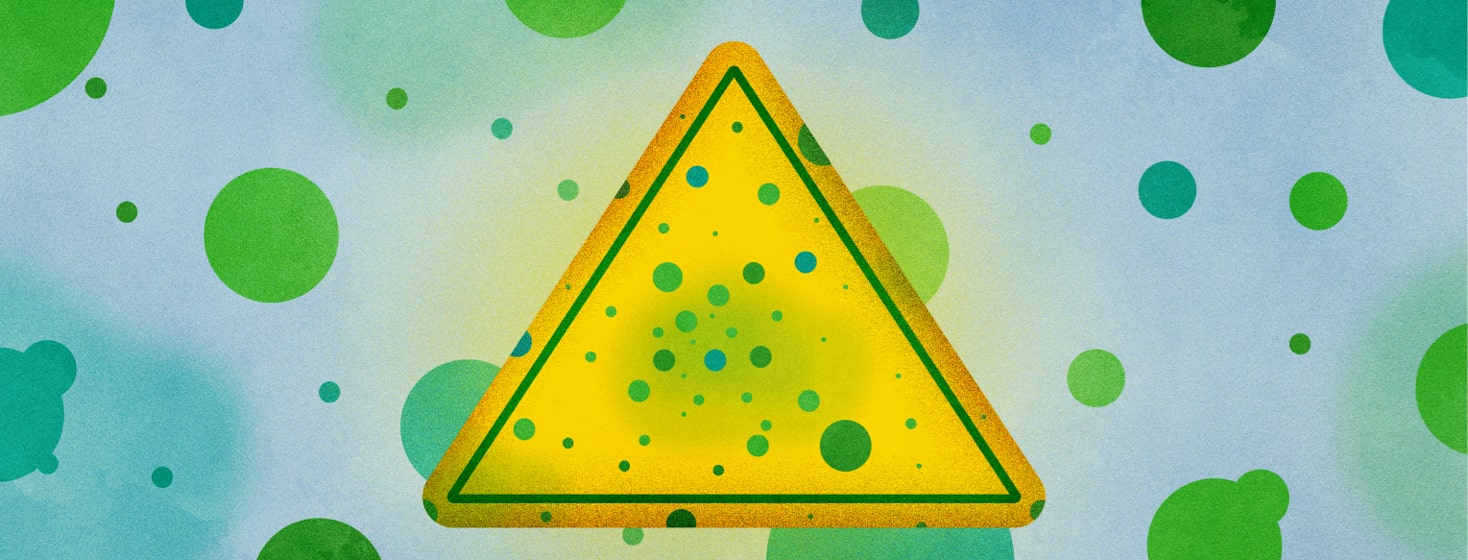Mold and Asthma
I was finishing up a yoga class and was completely relaxed. Then the instructor turned on the sound of a babbling stream, followed by bird sounds.
When I heard the running water sound, I panicked! I have had water damage and black mold in my last 2 houses, so I was startled by the sound of water.
At my job, I educate people who have water and mold damage. Luckily, I have been through some great trainings and can also share things I learned with mold damage in my last 2 homes. People usually ask me how mold affects their health and how to clean it up.
Health effects of mold
These can vary from person to person. But some of the side effects of mold exposure are:1
- Runny nose
- Sneezing
- Red eyes
- Skin rash
For people with asthma that are allergic to mold, exposure to mold in a home can cause an asthma flare. When I found mold in our first home, my daughter had just been discharged from the hospital after battling pneumonia. I cannot confidently link the 2 but have my suspicions.1
These are some of the things I have learned over the last 20 years.
Tips for cleaning up mold
Documentation
Take pictures and document all of the damage.
Call your insurance company
It is hard to tell what homeowner's insurance will cover. On my first house, our insurance canceled us for filing a black mold claim. In my second house, a freak storm flooded our basement. That insurer said it was an "Act of God" and would not pay for the damage.
No need to test for mold
The Environmental Protection Agency (EPA) says: “In most cases if visible mold growth is present, sampling is unnecessary.”2
Sampling can also be expensive. In our first home, we had to hire an Industrial Hygienist to get a mold sample before the remediation company would let their staff in our home. He charged $1,000 for the air sampling – and that was 20 years ago! I do not know what the cost would be now. And you guessed it – our homeowner's insurance would not cover it. Also, there are no EPA standards or regulations for airborne mold.2
Should you clean it up yourself?
EPA recommends hiring a professional if the damaged area is bigger than 10 square feet, there is sewage involved, or you have health concerns.3
Find the water leak and fix it FIRST
Mold damages anything it grows on (walls, wood trim, furniture, etc.). The longer you let the water leak go, the more damage it will cause. And it will also probably cost more to fix!3
Should I try to save my couch?
Carpet, couches, ceiling tiles, drywall, etc. can be almost impossible to clean. Mold can hide in tiny spaces, so it may be best to throw it out. But – some expensive and sentimental items might be able to be restored by a professional.3
Do not paint over the mold
As mentioned above, it is important to throw out any porous material. Trying to cover it up by painting over it will cause the paint to peel. And the mold will still be there.3
Wait for the area to dry out
When our basement flooded, we had to tear out the carpet and pad and throw it all away. I checked the cement floor with a moisture meter. I knew that the cement could look dry but might not be. I was not sure how long I would have to wait to have the new carpet installed. It took 6 weeks for the cement to dry out! Even with industrial fans. I told our neighbors that they should wait, but they immediately installed carpet, trapping the moisture under their carpet.
Wear safety gear
An N-95 respirator, long gloves, and goggles can help protect you while you are cleaning up mold.
What are your experiences with mold, mold allergies, and asthma?
Have any of you battled mold, and has it affected your asthma? I am sure there are plenty of stories about dealing with or cleaning up mold in an apartment or home. Let's hear your stories or tips for dealing with mold.

Join the conversation